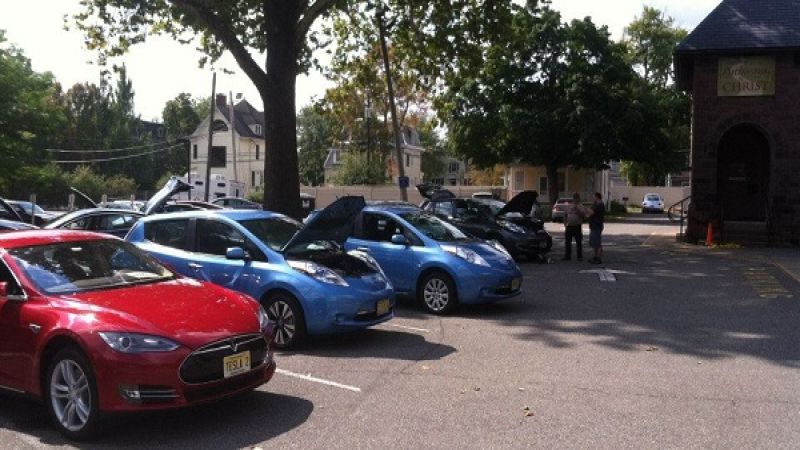Lets take one household for an example to see the impact on oil demand in the USA. I’ve been driving an electric car since 2008, but lets look at the past two years of my household EV driving. I have one Plug in Hybrid with 20 miles of EV range (Ford C-Max Energi) and my Nissan Leaf (100% electric). Ok, so far I’m up to 43,000 miles on my Leaf and 61,000 on my C-Max.
The Ford C-Max has a gauge that says I have driven 28,000 EV miles. So my household has driven 104,000 miles in two years (we got both cars within a month of each other) Out of that many miles, we have managed to drive 71,000 electric miles. I know not everyone has the same vehicle configuration as I have but what if most people of the 300,000 meant that 150,000 where two EV/PHEV households. I also know that not everyone drives as many miles as my crazy family but lets make another assumption that says they do. If the average car replaced was a 20 MPG car and the average gas price in the USA was $2.50/gallon. It would take 3550 gallons of gas to drive the 71,000 miles. That works out to $8875 worth of gas saved! I also know that my electric miles cost about 2.5 cents per mile to charge the cars. So the 71,000 miles cost me $1775 in electricity. The net savings is $7100. Now that is powerful.
So what if every household was the same in the 150,000 households in the US? (I know its not, but this is fun) That’s 532.5 Million gallons of gasoline sales lost at a retail value of over $1.3 Trillion dollars of lost revenue! Now what if the EV market moved up to 1% of the USA car market. If the EV/PHEV market went over 1% of new car sales for 5 straight years, you would be looking at compounding losses in the trillions of dollars for the Oil Companies! This is really bad news for this disruptive technology that is building steam in its market niche.
While my example isn’t really something that truly reflects the national average, it does illustrate one thing that electric cars cost the oil companies’ big time.
When more and more people hear about how much money is being saved just because they switched transportation fuel and made the electric choice, it will really change and take a big chunk out of big oil.
If you own a BMW i3 you could be getting paid by your utility
Set Torque News as Preferred Source on Google












Comments
Excellent story, but you make
Permalink
Excellent story, but you make one mistake many EV advocates often do. You calculate the savings based on a 20 MPG car. Having polled EV owners, I know that many come from green cars like the 50 MPG gasoline-only Prius, or from prior generation EVs. Of course some new EV owners move from something ridiculous (Ford F-150 or whatever), but as time goes on, as you your article illustrates, more and more EV owners are already green car owners. Compare the EV to its closest gas-only alternative and your stories have more weight. In my house (Eversource Electric with a $0.26 kWh rate) a Prius or Accord Hybrid is less expensive per mile for gasoline that a Leaf is for electricity. No savings.
One question about this
Permalink
One question about this article. If that many electric cars goes on the grid... How does that affect our energy needs to produce Electricity. Another question is if we do not pay gas taxes at the pump we will pay high taxes per mile. There may be a benefit in the short term but the overall outcome may not be what we hope. Another thought is that each Nissan Leaf for example uses 2.4 kg of Lithium to produce their batteries. We will need vast amounts of lithium produce enough cars to kill the combustion engine vehicle.